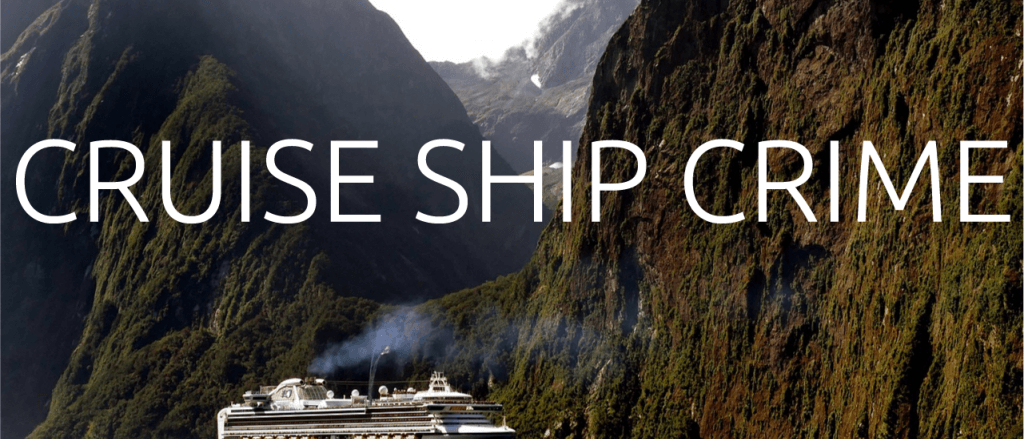
On 2 January 2017, a passenger’s body was found in the M/V Sharden’s ventilation shaft 2 months after being reported missing. On 23 December 2016, a 74 year-old woman was reported missing from the Queen Mary 2 and was thought to have fallen overboard.
In November, a woman was allegedly sexually assaulted by a fellow passenger aboard The Explorer of the Seas. Reports indicate that almost every two weeks a person goes overboard, with most never being found. It is not a new phenomenon that crimes occur on cruise ships, but the circumstances of those crimes and how they are dealt with needs to be addressed urgently. There should be increasing pressure to safeguard those affected, all allegations should be appropriately investigated and victims should receive the support they need. Considering that cruise ships are one of the biggest single growth tourist industries, and that the number of Britons taking cruises is estimated to surpass two million this year, much more needs to be done to ensure cruise ship passengers are not walking into a lawless environment on board their luxury cruise.
The Queen Mary 2 has capacity for 2,695 passengers and 1,253 officers and crew members; the size of a small town. Dartmouth, with a population of 5,064 (taken from 2011 census) have a professional, dedicated police force to deal with crime. They also have a number of support organisation they can refer victims to for practical help and emotional support. If we are to look at a cruise ship as a small town, then we must acknowledge the fact that crimes will occur and appropriate processes should be in place to deal with them; this must include professional investigation, forensic services, specialist medical services and victim support.
Security personnel are in place on cruise ships to oversee the entirety of crime (and other safety issues). In essence, the companies’ self ‘police’. There are arguments by the companies that there is less crime than on land; evidence suggest the contrary. Also this argument diminishes when those tasked to protect passengers are not independent and do not have a duty of care to uphold. In correlation with the private security personnel operating on the ships, the medical staff posted on ships are considered ‘independent contractors’ and cruise companies do not accept vicarious liability in regard to the care they provide. There lacks an independent regulator to legitimise and check that the proper training is undertaken and that the security is at the appropriate level to be able to effectively protect its temporary residents. There is a necessity to make the public aware that there are serious risks to be taken once you step onto a cruise ship. Would you feel comfortable entering a small town knowing that there is an absence of anyone to ensure law and order, to investigate crimes, to provide you with specialist and forensic medical care if you are assaulted?
According to Dr Ross Klein, 20-30% of sexual assault victims on cruise ships are below the age of eighteen, substantiating that many victims are especially vulnerable because of their young age and need to receive a high level of professional support and care. Incidents of sexual assault and sexual victimisation are estimated to be 50% higher on cruise ships than on land. It therefore seems judicious that there are measures put in place to ensure that trained staff are available to deliver the much needed support that victims need and deserve. Without the correct level of training, which is not a prerequisite for the majority of cruise ship staff, how can victims receive the support and care that they need? The training provided to staff is primarily geared towards how to respond to a major incidents or disasters, not how to support victims of crime. Victims, particularly victims of sexual violence, are also likely to feel very vulnerable being confined to a ship with their perpetrator; with a strong possibility of intimidation.
The vast majority of cruise ships are registered in states such as Panama and the Bahamas – a process referred to as ‘flags of convenience’ by the International Transport Federation. Even Mongolia, which doesn’t have a coastline, can be chosen by cruise ship operators as their registered country. This means that when a European passenger steps onto a cruise ship and that cruise ship sails into international waters (12 miles from the coast line), they are effectively stepping into a foreign country outside of EU jurisdiction; jurisdiction lies instead with the country where the ship is registered. The prominent dilemma this brings is that it is the police force of the country where the ship is registered that will subsequently investigate a crime committed on the ship. You are at the mercy of that country’s laws and all investigations and criminal prosecutions will be dealt with by that state. Consistent, professional, victim focused investigation and support to those affected by cruise ship crime cannot be guaranteed when it is investigated by a small police force based thousands of miles away and with minimal resources.
There has been a recent changes in US law which requires the FBI to investigate crimes committed against US citizens on cruise ships that leave or enter US ports. An agent or victim specialist will engage with the victims directly and determine who is most appropriate to make an outreach visit to meet the ship once it docks back in the US. This is a progressive model which has great promise to better protect victims of cruise ship crime. If the UK could replicate similar legislation it would greatly advance how cruise ship crimes are dealt with. This, alongside a major increase in tailored training for the staff onboard ships, could lead to addressing a major problem that has existed for many decades.
